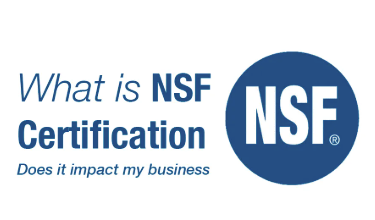How Social Media Can Improve Patient Engagement and Satisfaction

In today’s digital age, social media has evolved into an essential tool for almost every industry, and healthcare is no exception. For healthcare providers, social media offers an effective way to engage patients, foster communication, and build long-term relationships that can enhance patient satisfaction. As patient expectations rise, healthcare organizations must adapt and leverage social media to meet the demands of modern healthcare consumers. With the support of a healthcare marketing agency, social media marketing, and proper social media management, healthcare providers can improve patient engagement and satisfaction.
The Power of Social Media in Healthcare
Social media platforms such as Facebook, Instagram, Twitter, and LinkedIn are now integral parts of people’s daily lives. These platforms allow healthcare organizations to reach out to patients, share valuable information, and create an interactive community. Patients can now easily access information about medical services, procedures, and wellness tips through social media.
For healthcare marketing, social media offers a powerful medium to increase brand visibility and communicate directly with patients. It enables healthcare providers to maintain a consistent presence and build trust, which is essential for patient loyalty. Social media’s ability to facilitate two-way communication also means that patients can ask questions, leave feedback, and engage with healthcare providers in real time.
Enhancing Patient Engagement Through Social Media
Engagement is critical for fostering strong relationships between healthcare providers and patients. When patients are actively engaged, they are more likely to trust their providers, adhere to treatment plans, and experience better outcomes. Here’s how social media can help improve patient engagement:
1. Educational Content Delivery
Social media platforms are ideal for delivering educational content that can empower patients to make informed decisions about their health. Through blog posts, videos, infographics, and live webinars, healthcare providers can educate patients on various topics such as disease prevention, treatment options, and healthy lifestyle choices. For example, a healthcare marketing agency can create content around common healthcare concerns like managing chronic conditions, nutrition tips, and mental health awareness.
By consistently delivering valuable information, healthcare providers can position themselves as trusted authorities in their fields, enhancing patient engagement. When patients feel more knowledgeable, they are more likely to actively participate in their healthcare decisions, leading to increased satisfaction.
2. Building a Supportive Community
One of the key benefits of social media marketing is its ability to create online communities where patients can connect with others who share similar health concerns. These communities provide emotional support, which is particularly important for patients dealing with chronic conditions, mental health issues, or recovery from surgery.
Healthcare providers can use social media to facilitate discussions, share patient success stories, and provide a platform for patients to exchange experiences and advice. For instance, creating a closed Facebook group for patients dealing with diabetes or cancer can foster a sense of belonging and encourage patients to engage more deeply with their healthcare providers.
3. Live Q&A Sessions and Webinars
Patients often have questions about their health but may hesitate to ask their providers during appointments. Social media offers a solution through live Q&A sessions and webinars, where healthcare professionals can interact with patients in real time. These sessions allow patients to ask questions in a relaxed setting, fostering greater engagement and trust.
For example, a healthcare marketing agency can organize regular live sessions on Instagram or Facebook, where doctors or specialists discuss common health concerns or recent medical developments. This format allows patients to receive immediate responses to their questions, creating a more personalized and interactive experience.
Additionally, live events enable healthcare providers to clarify any misinformation that patients may have encountered online, further building their credibility.
4. Interactive Tools for Health Monitoring
Social media platforms can also integrate interactive tools that encourage patients to track their health progress and stay engaged with their care. For instance, healthcare organizations can use social media management tools to provide access to online health assessments, symptom checkers, or fitness challenges that keep patients motivated to maintain their health.
These tools encourage patient participation, giving them a sense of control over their healthcare journey. When patients feel empowered to monitor and improve their health, they are more likely to stay committed to their treatment plans, leading to higher satisfaction.
5. Personalized Communication
Patients today expect personalized care, and social media allows healthcare providers to offer more tailored communication. Whether through direct messages, personalized content recommendations, or targeted ads, healthcare providers can use social media to connect with patients on a personal level.
For example, a healthcare marketing agency can develop targeted social media ads for specific patient demographics, such as women’s health, mental health, or senior care. Personalizing the communication not only enhances engagement but also makes patients feel valued, which is essential for long-term relationships.
6. Feedback and Reviews
Patient feedback is crucial for improving healthcare services, and social media provides a direct channel for patients to share their experiences. Positive feedback and reviews on platforms like Google, Facebook, or Yelp can help healthcare providers build their reputation and attract new patients.
On the other hand, negative feedback offers an opportunity for improvement. When patients voice their concerns on social media, healthcare providers can respond promptly, addressing issues and demonstrating their commitment to patient satisfaction. This proactive approach to social media management can help turn negative experiences into positive ones and prevent patient churn.
7. Proactive Health Reminders and Updates
Social media is an excellent tool for sending proactive health reminders and updates. Healthcare providers can post reminders for routine check-ups, vaccinations, health screenings, and wellness events. Additionally, during public health emergencies, such as the COVID-19 pandemic, social media played a vital role in keeping patients informed about safety measures, vaccine availability, and testing sites.
By keeping patients up-to-date with timely information, healthcare providers can encourage proactive health behaviors, ultimately leading to better patient outcomes and satisfaction. This type of engagement also helps build long-term relationships, as patients appreciate healthcare providers who care about their well-being beyond the exam room.
Long-Term Relationships Through Social Media
Social media doesn’t just improve short-term patient engagement; it also helps cultivate long-term relationships. A strong social media presence demonstrates that a healthcare provider is available and accessible, which can significantly increase patient loyalty. Here are several ways that social media fosters long-term relationships:
1. Consistent Interaction
Long-term relationships are built on consistent communication, and social media provides the perfect platform for maintaining regular interaction with patients. Through regular posts, updates, and responses to comments, healthcare providers can stay top-of-mind for patients, even when they don’t have an immediate need for medical services.
Montreal SEO agency can help providers maintain this consistent presence by scheduling posts, running targeted campaigns, and engaging with patients across multiple platforms. Social media management ensures that healthcare providers are always available, keeping patients engaged throughout their healthcare journey.
2. Transparency and Trust-Building
Trust is a cornerstone of any long-term relationship, and social media allows healthcare providers to foster transparency with their patients. By sharing behind-the-scenes content, such as how a clinic operates, staff introductions, or patient testimonials (with consent), healthcare providers can humanize their services and build stronger connections with their patients.
Moreover, being transparent about medical treatments, procedures, and healthcare options helps build trust. Patients are more likely to stay with a healthcare provider they trust, and social media offers a medium to nurture this trust over time.
3. Loyalty Programs and Patient Engagement Initiatives
Another way to foster long-term relationships through social media is by implementing loyalty programs or engagement initiatives that reward patients for staying connected. For instance, healthcare providers can create online contests, wellness challenges, or referral programs that encourage patients to participate and share their experiences with others.
Through social media marketing, these programs can be promoted widely, boosting patient retention and satisfaction. Engaged patients are more likely to recommend the healthcare provider to their friends and family, further strengthening the provider’s relationship with the community.
4. Emotional Connection and Compassionate Care
Patients don’t just want medical expertise; they also want to feel cared for on an emotional level. Social media allows healthcare providers to demonstrate empathy and compassion, which is vital for building long-term relationships. Providers can use social media to celebrate patient milestones, offer words of encouragement, and address patient concerns with compassion.
Healthcare marketing agencies can help create compassionate content that resonates emotionally with patients, strengthening the bond between the provider and the patient. When patients feel emotionally connected to their healthcare provider, they are more likely to remain loyal and satisfied.
The Role of Healthcare Marketing Agencies in Social Media Success
To fully harness the power of social media, healthcare providers often turn to healthcare marketing agencies for expert guidance. A healthcare marketing agency specializes in creating tailored social media strategies that align with the unique goals and needs of healthcare providers. These agencies handle everything from social media management to content creation and audience engagement, allowing healthcare providers to focus on delivering quality care.
By partnering with a healthcare marketing agency, providers can ensure that their social media platforms are used effectively to engage patients and foster satisfaction. A strategic approach to social media marketing not only improves patient interactions but also ensures that healthcare organizations can maintain a competitive edge in an increasingly digital landscape.
Social media is a powerful tool that can transform how healthcare providers engage with their patients. Through educational content, interactive tools, personalized communication, and consistent interaction, healthcare providers can significantly boost patient engagement and satisfaction. Moreover, social media allows for the creation of long-term relationships built on trust, transparency, and emotional connection.
With the support of a healthcare marketing agency and proper social media management, healthcare providers can stay connected with their patients and deliver a higher level of patient care. As healthcare continues to evolve, the role of social media in fostering patient engagement will only become more vital, making it an indispensable tool for modern healthcare marketing.



